Covid variants: Why hasn't the UK banned all international flights?
- Published
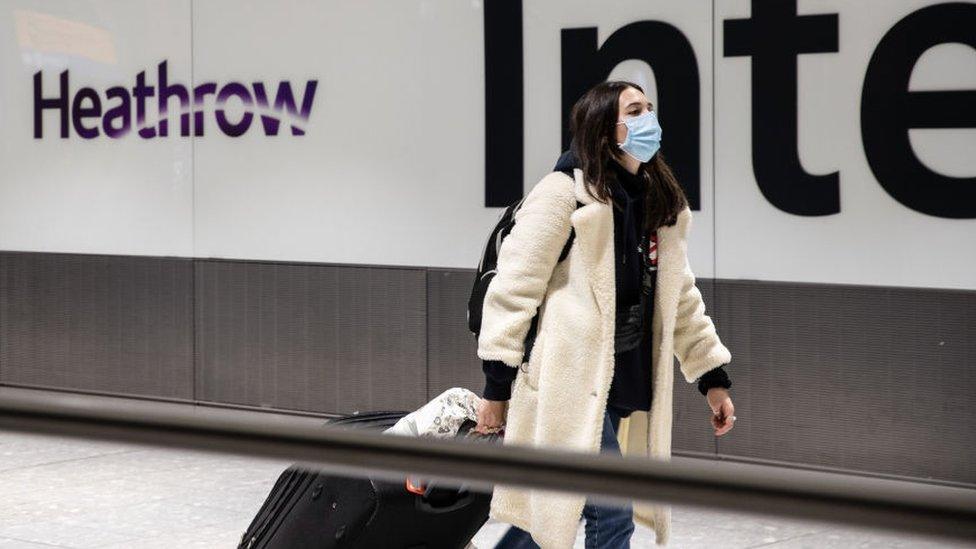
There are more than 40 countries on the government's red list, external, which has the strictest travel restrictions.
One is India, where a new mutation of coronavirus first identified in the country has spread to the UK. This has been linked to international travel. It has been classified as a "variant of concern", external and more than 3,400 cases of it have been found in the UK.
But despite this and the discovery in the UK of other variants identified abroad, the government has never banned international travel altogether - unlike some countries.
What are the current travel rules?
A traffic light system has been introduced for travel, with countries classed as green, amber or red - with different rules for quarantine and Covid tests.
Red list countries (which include India, Pakistan, Brazil and South Africa) are those the UK government says are at the highest risk from Covid, and should not be visited "except in the most extreme of circumstances".
If you have been in one, you can only enter the UK if you are a UK or Irish national, or UK resident.
You must be tested negative for Covid-19 before departure and self-isolate for 10 days in a government-approved quarantine hotel.
Direct flights from many red list countries to the UK are banned but some are allowed. These include flights from India, Pakistan, Bangladesh and Kenya. The government says this is to avoid potential disruption to critical freight and British nationals seeking to return home.
On one day (19 May), Reality Check counted 4 direct flights from India to Heathrow.
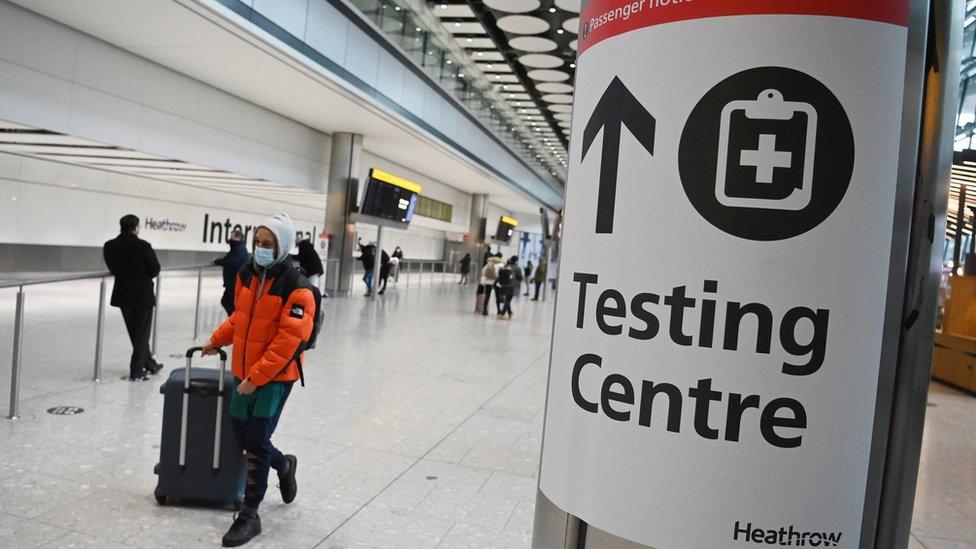
How were Covid variant cases able to get through?
Coronavirus variants originally found in Brazil, South Africa and India are believed to be more transmissible, and there are concerns vaccines may not be quite as effective against them.
British and Irish citizens who have been in these countries are allowed to return to the UK and - until mid-February - were trusted to self-isolate at home and could take public transport to get there.
Prime Minister Boris Johnson said the UK had moved "as fast as we could" to introduce quarantine hotels, describing them as a "very tough regime". The measures began on 15 February 2021, after weeks of speculation.
Labour said there had been a lack of a "comprehensive" border system.
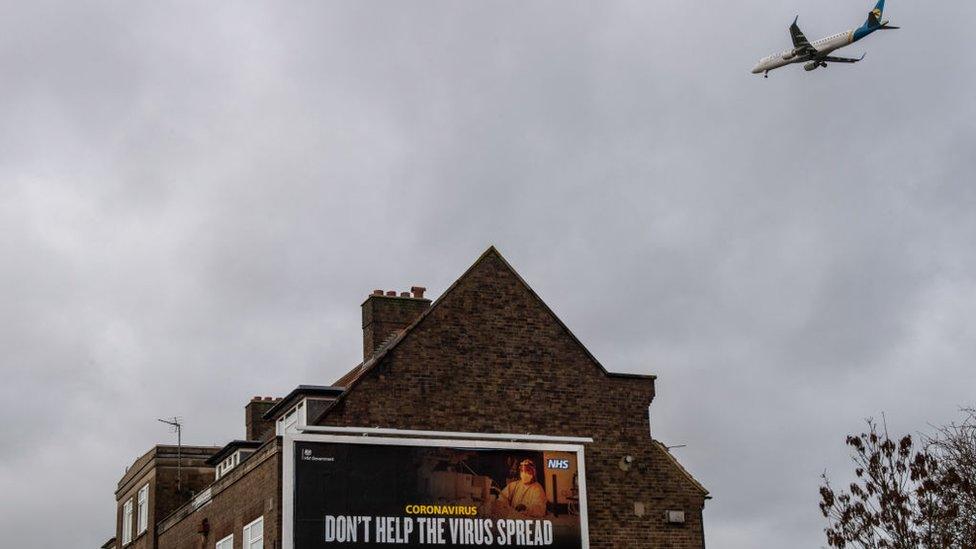
The Civil Aviation Authority said that in February 2021, 50,000 passengers travelled between India and the UK, which is an average of just under 900 a day in each direction.
The country was placed on the red list on 23 April and there has been criticism that it should have been added earlier.
Just under half of people with the India variant of concern in England had been travelling, according to a 13 May briefing from Public Health England, external. It said that about one third of the cases were in London and a quarter were in the North West of England.
Positive tests from passengers arriving in the UK are automatically sent for genome sequencing, which identifies new variants.
But there is concern that by the time a variant has been identified, it may already have spread in the UK.
Why didn't the UK shut its borders before it had any cases?
The debate over whether to shut UK borders stretches back to the start of the pandemic.
Between January and March 2020, the UK introduced some measures to try to protect itself from the new virus.
Quarantine was imposed on 273 people travelling from Wuhan in China, where the first outbreak was seen. Others from "high-risk countries" including China, Iran and Northern Italy were asked to voluntarily isolate for 14 days.
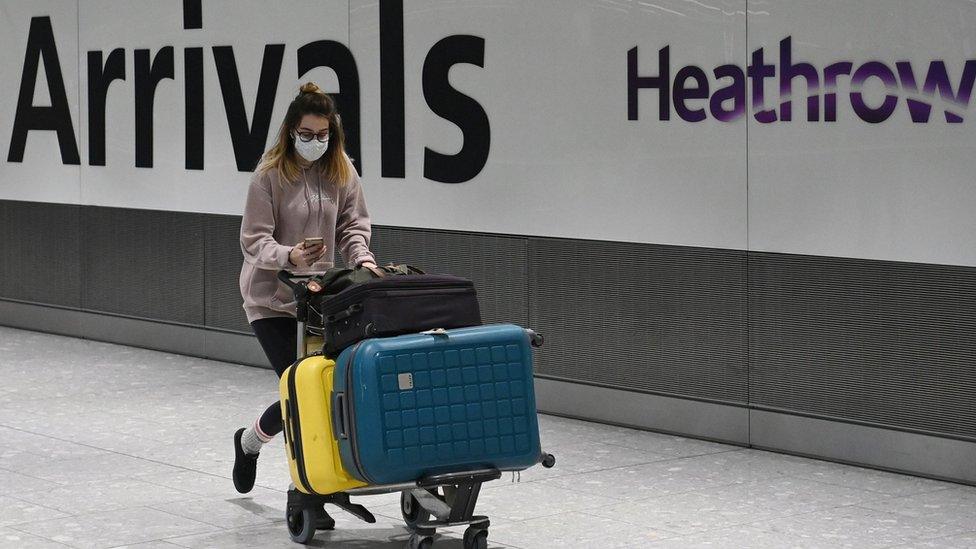
An inquiry into the pandemic, external suggested it was understandable the government "did not consider it practical or effective simply to restrict flights" at that time, partly because there were so many British residents trying to get home.
But these self-isolation requirements were withdrawn on 13 March 2020 - 10 days before the UK went into the first lockdown.
"The government's failure to have proper quarantine measures in place in March as the infection was spreading fast was a grave error and meant Covid spread faster and reached more people," Yvette Cooper, chair of the committee of MPs behind the inquiry said.
One study found, external the virus was introduced to the UK "well over a thousand times in early 2020", with a third of transmission chains brought in from Spain, followed by 29% from France, neither of which faced any restrictions. China accounted for just 0.4% of imported cases.
At the end of February 2020, the World Health Organization (WHO) advised against travel bans, external, saying they were "usually not effective in preventing the importation of cases but may have a significant economic and social impact".
In April 2021, the WHO said it would update its "risk-based guidance", external on Covid and international travel.
What were the government's reasons?
The Home Office said the committee behind the inquiry was "incorrect in their assertions".
It said keeping borders open helped businesses maintain international connections, boosted the economy and meant people could still travel for essential reasons.
It argued that by mid-March 2020 there was "significant transmission" in the UK and any extra travel restrictions at that time would have had a "very marginal" impact.
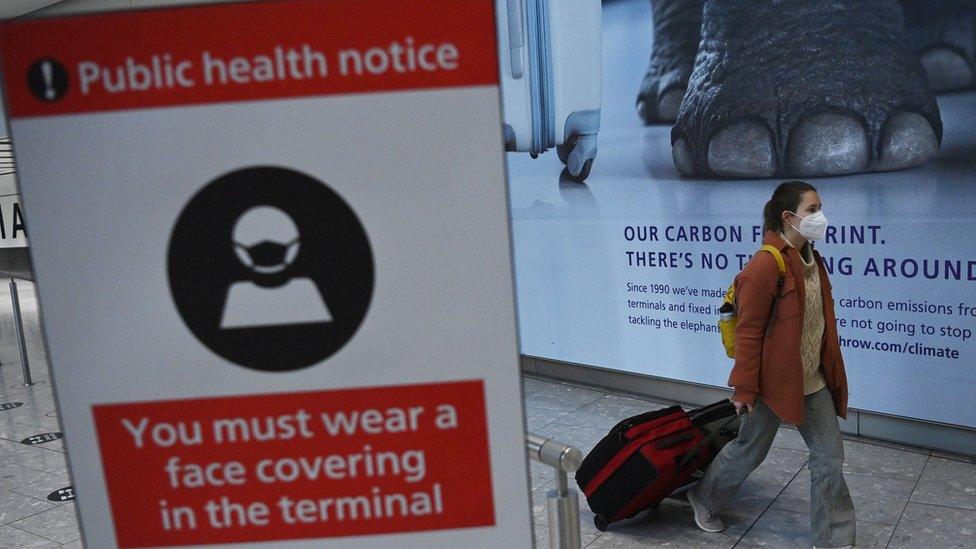
At a meeting in February 2020, external, the government advisory committee Sage suggested that cutting the number of infections entering the UK by half would only delay the epidemic by five days.
The scientists estimated that a 95% reduction in imported cases, which would have required "draconian" travel restrictions, would have pushed things back by a month.
But at its meeting in January 2021, external, Sage said: "No intervention, other than a complete, pre-emptive closure of borders, or the mandatory quarantine of all visitors upon arrival in designated facilities, irrespective of testing history, can get close to fully preventing the importation of cases or new variants."

TESTING: How do I get a virus test?
SUPPORT BUBBLES: What are they and who can be in yours?
TEST AND TRACE: How does it work?
